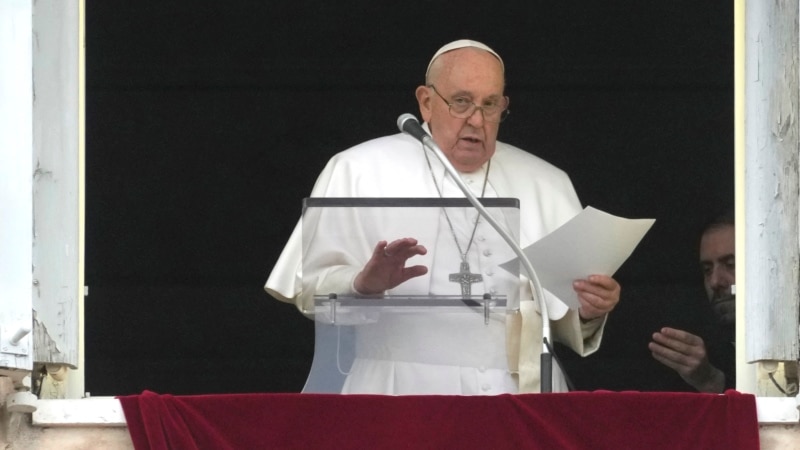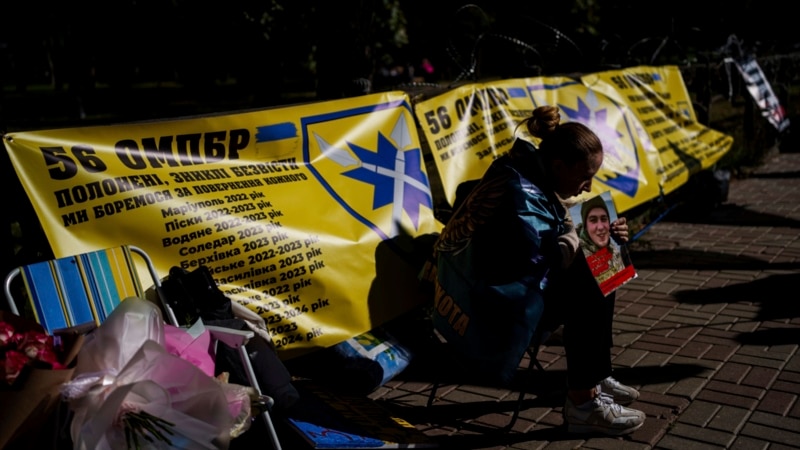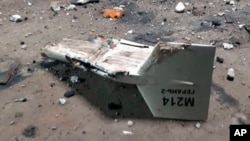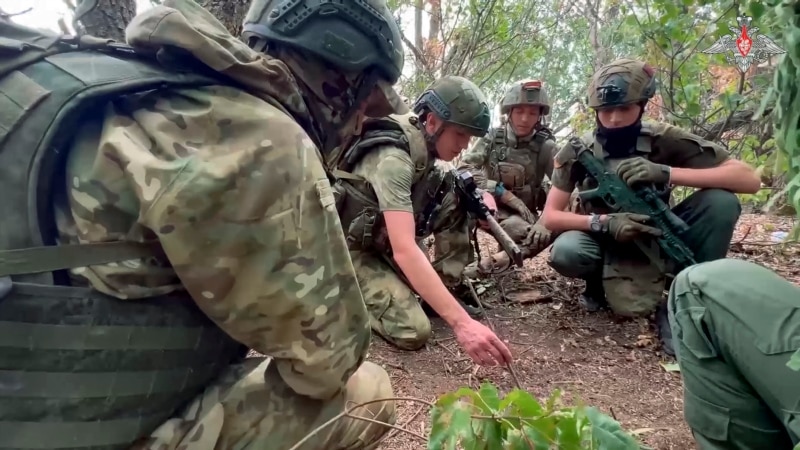Kyiv criticized a recent comment by Pope Francis that Ukraine should “have the courage to raise the white flag,” meaning it should negotiate with Russia two years into Moscow’s invasion.
“Our flag is a yellow and blue one. This is the flag by which we live, die, and prevail. We shall never raise any other flags,” Ukrainian Foreign Minister Dmytro Kuleba said on social media, vowing “never” to surrender.
Kuleba called on the pontiff to stand “on the side of good” and not put the opposing sides “on the same footing and call it ‘negotiations.'”
He also thanked the pope for his “constant prayers for peace” and said Kyiv hoped the cleric would visit Ukraine.
Vatican spokesperson Matteo Bruni responded to the criticisms saying that the pontiff urged “a stop to hostilities (and) a truce achieved with the courage of negotiations,” rather than an outright Ukrainian surrender.
According to a transcript of an interview last month with Swiss broadcaster RSI and a partial video made available to the Reuters news agency Saturday, Francis urged Ukraine to “have the courage to negotiate” an end to the war with Russia.
Bruni said the pope’s comments were in response to a question by interviewer Lorenzo Buccella who used the term “white flag” to refer to peace negotiations initiated by Ukraine. “In Ukraine, some call for the courage of surrender, of the white flag. But others say that this would legitimize the stronger party. What do you think?” asked Buccella.
“It is one interpretation, that is true,” Francis said adding, “I think that the strongest one is the one who looks at the situation, thinks about the people and has the courage of the white flag, and negotiates,” he said, adding that talks should take place with the help of international powers.
The interview is slated to be broadcast on March 20.
“We continue to hope that after two years of devastating war in the heart of Europe, the pontiff will find an opportunity to pay an apostolic visit to Ukraine to support over a million Ukrainian Catholics, over 5 million Greek Catholics and all Ukrainians,” Kuleba said.
Pope Francis’ message that Ukraine should “have the courage to negotiate” an end to the war with Russia, now in its third year, has also drawn heavy criticism from other Kyiv officials and many of Ukraine’s allies.
Polish Foreign Affair Minister Radek Sikorski, a vocal ally of Kyiv, and Andrii Yurash, Ukraine’s ambassador to the Vatican, both used World War II analogies to condemn the pope’s remarks, while a leader of one of Ukraine’s Christian churches said Sunday that only the country’s determined resistance to Russia’s aggression had prevented a mass slaughter of civilians.
“How about, for balance, encouraging [Russian President Vladimir] Putin to have the courage to withdraw his army from Ukraine? Peace would immediately ensue without the need for negotiations,” Sikorski responded with a post on X, formerly known as Twitter.
In a separate post, Sikorski drew a parallel between those calling for negotiations while “denying (Ukraine) the means to defend itself” and European leaders’ “appeasement” of Adolf Hitler just before World War II.
Yurash also posted on X an analogy between the pope’s comments of Ukraine negotiating with Russia and calls in WWII for “peace talking with Hitler,” adding, “If we want to finish [the] war, we have to do everything to kill [the] dragon.”
Archbishop Sviatoslav Shevchuk, the head of the Ukrainian Greek Catholic Church, said Sunday that surrender is not on the minds of Ukrainians.
“Ukraine is wounded, but unconquered! Ukraine is exhausted, but it stands and will endure. Believe me, it never crosses anyone’s mind to surrender,” he said while meeting with Ukrainians in New York City.
Ukrainian President Volodymyr Zelenskyy has said that while he wants peace, he will not give up any territory. The Kremlin has ruled out engaging in peace talks on terms set by Kyiв.
Mutual attacks continue
Ukraine’s air defense systems destroyed 35 of 39 attack drones Russia launched overnight, Ukraine’s air force said on Sunday.
Most of the drones were destroyed over Ukraine’s eastern and southern regions, the air force said on the Telegram messaging app. It did not say whether there was any damage.
Russia launched four S-300 anti-aircraft guided missiles, the air force said. It did not say what happened to the missiles or whether they reached their targets.
Ukrainian officials say three people were killed Saturday, including a 16-year-old boy, in Russian artillery attacks that hit the town of Chervonohryhorivka located across the Dnipro River from the Russian-held Zaporizhzhia nuclear power plant, while a seven-year-old was wounded by a Russian bomb that landed Saturday in a residential area, in the southern city of Kherson.
Ukraine shelling killed a woman and seriously injured her husband, in the village of Kulbaki in Kursk, the governor of the Russian region bordering Ukraine said Sunday.
“A residential building caught fire and a local female resident died,” Governor Roman Starovoit said on the Telegram messaging app. “Her husband suffered extensive burns.”
Another home was damaged in the village, parts of which were left without electricity.
Reuters could not independently verify the report. There was no immediate comment from Ukraine.
Starovoit also said that debris from a downed Ukrainian drone sparked a fire at an oil depot in the Kursk region.
Nine Ukrainian drones targeted the Belgorod region, another southern Russian province that borders Ukraine, overnight and Sunday, according to local Gov. Vyacheslav Gladkov. Later Sunday, Russia’s defense ministry said that two drones were shot down over the Novgorod region in northern Russia, some 1,000 kilometers from the Ukrainian border. There were no immediate reports of casualties.
Blasts and attacks on Russian regions bordering Ukraine have been frequent during the two years since Russia launched war on Ukraine. Russian officials have blamed either Ukrainian forces or pro-Ukrainian saboteurs for the attacks.
Some information for this report came from Reuters, The Associated Press and Agence France-Presse.
www.Megalopoles.online





